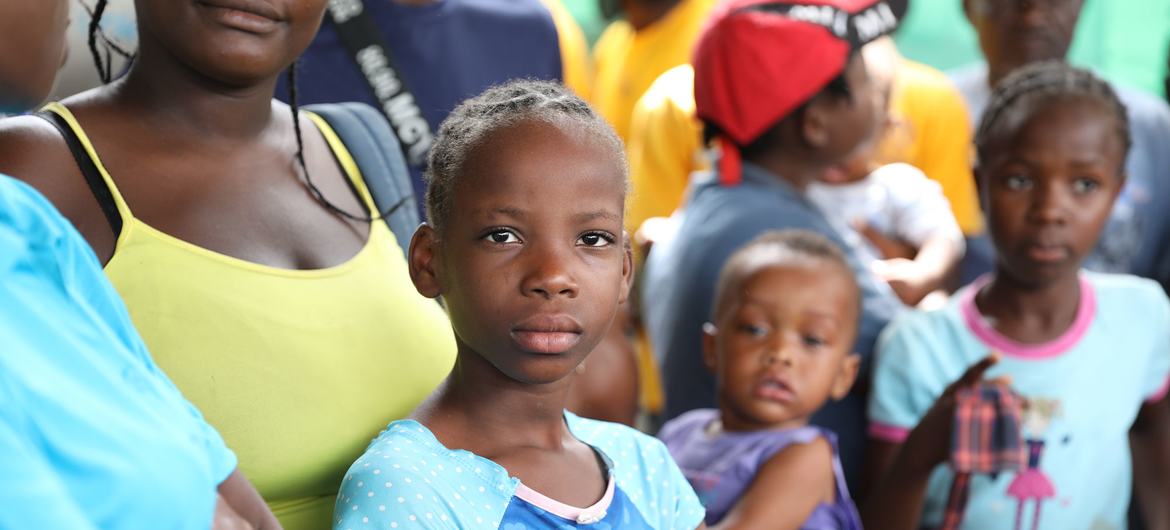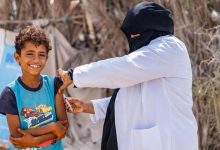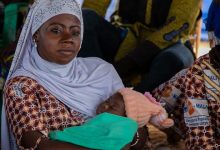Latest Happenings: Health Concerns in Turmoil, Aid on the Way for Haiti, Drive for Harmony in the CAR
NCDs are responsible for 75 per cent of deaths worldwide, and it is estimated that strokes and heart attacks are up to three times more likely following a disaster, they said.
Tweet URL
To save more lives, they are meeting in Denmark this week to ensure that care and treatment for NCDs are included as a standard part of humanitarian emergency preparedness and response.
Conditions worsen during crisis
“People living with NCDs in humanitarian crises are more likely to see their condition worsen due to trauma, stress, or the inability to access medicines or services,” said the head of the World Health Organization (WHO). Tedros Adhanom Ghebreyesus.
WHO has convened the three-day meeting alongside Denmark, Jordan, Kenya, and the UN refugee agency, UNHCR, which opened in Copenhagen on Tuesday.
The number of crises impacting people’s health has been increasing, they reported.
Last year, WHO responded to 65 graded health emergencies worldwide, up from 40 a decade earlier. UNHCR also issued 43 emergency declarations to scale up support in 29 countries – the highest number in decades.
The UN estimates that 300 million people worldwide will need humanitarian assistance and protection in 2024, with over half in need of emergency health assistance.

© UNICEF/Ndiaga Seck
Families gather at a site for displaced persons in Tabarre, Haiti.
$674 million humanitarian plan for Haiti
Moving to Haiti, where the UN, Government and partners have launched a $674 million plan to meet humanitarian needs this year.
The plan seeks to provide food, shelter, health, education and protection services for 3.6 million people, said UN Spokesperson Stéphane Dujarric, speaking in New York on Tuesday.
He said it comes against the backdrop of a serious protection crisis for millions in Haiti.
In 2023, the country saw the highest number of murders, kidnappings, lynchings and sexual assaults in the last five years. Additionally, nearly one in two Haitians are food insecure, and basic services are on the verge of collapse.
Rights expert commends peace efforts in Central African Republic
An expert appointed by the UN Human Rights Council has urged the Government of the Central African Republic (CAR) to continue efforts towards peace and stability.
Yao Agbetse, Independent Expert on human rights in the CAR, concluded a 10-day visit to the country on Tuesday.
He welcomed efforts by the Government to extend security to significant parts of the territory, while highlighting remaining challenges beyond urban areas.
“Despite progress, daily insecurity persists due to armed groups entrenched in remote regions, particularly forests and mining sites,” he said in a statement.
The rights expert addressed recent incidents, such as an attack on the village of Nzakoundou, located in Lim-Pendé prefecture, where the 3Rs armed group allegedly targeted army checkpoints, resulting in casualties and civilian deaths.
Call for accountability
Condemning the violence, he stressed the importance of holding perpetrators of war crimes and crimes against humanity to account.
“The use of explosive devices in various prefectures has further aggravated the situation, causing civilian casualties, with children being particularly affected, and disrupting essential activities such as schooling and agricultural activities,” he added.
He also called for support for demining efforts, urging technical and financial partners to provide assistance to the UN Mine Action Service (UNMAS) and to integrate demining specialists into the UN peacekeeping mission in the country, MINUSCA.
Independent experts are part of what is known as the Special Procedures of the UN Human Rights Council, which is based in Geneva.
They receive their mandates from the Council, are not UN staff and receive no payment for their work.
Elliot is an award-winning journalist passionate about international affairs and humanitarian causes. Elliot has covered stories from conflict zones and areas devastated by disasters, highlighting critical global issues.




How are noncommunicable diseases specifically addressed in emergency situations? Are there any specific measures in place for stroke and heart attack prevention following disasters?
In emergency situations, specific measures are in place to address noncommunicable diseases, such as ensuring that care and treatment for NCDs are a standard part of humanitarian emergency preparedness and response. Following disasters, efforts are intensified to prevent strokes and heart attacks, as they are up to three times more likely to occur. It’s crucial to prioritize the health needs of those affected by crises and ensure access to essential medicines and services.
NCDs are a significant concern, especially during emergencies. It is crucial that care and treatment for NCDs are prioritized in humanitarian response efforts to save more lives. The increase in health emergencies worldwide highlights the urgent need for proactive measures to address these challenges.
NCDs are a major concern in global health, especially during humanitarian crises. It’s crucial to prioritize care and treatment for these conditions to save more lives and mitigate the impact of disasters on individuals with pre-existing health conditions.
It’s crucial that measures are taken to address the impact of NCDs during humanitarian crises. People with NCDs are particularly vulnerable in such situations and ensuring access to proper care is essential for their well-being. This initiative in Denmark is a positive step towards integrating NCD care into emergency response protocols.
Are there any specific measures being discussed to address the increased risk of strokes and heart attacks following a humanitarian disaster?
Yes, specific measures are being discussed to address the increased risk of strokes and heart attacks following a humanitarian disaster. The World Health Organization, in collaboration with various countries and agencies, is meeting in Denmark this week to ensure that care and treatment for NCDs are included as a standard part of humanitarian emergency preparedness and response. This initiative aims to provide support and medical assistance to people living with NCDs during crises to prevent their conditions from worsening due to trauma, stress, or lack of access to medicines or services.
Are there any specific measures being planned to address the increased risk of strokes and heart attacks following a disaster, as mentioned in the article?
Hey JennaSmith23, great question! Yes, there are specific measures being planned to address the increased risk of strokes and heart attacks following a disaster. The meeting in Denmark this week aims to ensure that care and treatment for NCDs become a standard part of humanitarian emergency preparedness and response. It’s crucial to provide support for those with NCDs during crises to mitigate the impact on their health. Stay tuned for more updates on this important issue!
It is crucial that efforts are made to address the impact of NCDs during humanitarian crises. People affected by NCDs are particularly vulnerable in such situations, and ensuring access to care and treatment can save lives.
Are there any specific strategies being discussed at the meeting to address the increased likelihood of strokes and heart attacks following disasters for individuals with NCDs?
Hi EmilyDavis87, at the meeting, strategies are being formulated to ensure that individuals with NCDs have access to proper care and treatment during humanitarian crises. This includes provisions for medications, medical services, and mental health support to mitigate the risk of strokes and heart attacks. The focus is on improving emergency preparedness to safeguard the health of vulnerable populations.
NCDs are a major concern globally, and it’s crucial to address the impact of health crises on these conditions. I’m glad to see efforts being made to prioritize care and treatment for NCDs in humanitarian emergencies.
As a public health advocate, I strongly believe that integrating care for NCDs in humanitarian responses is crucial to saving lives in crisis situations. It’s heart-wrenching to think about the impact disasters have on individuals with pre-existing conditions, and it’s imperative that we prioritize their healthcare needs during emergencies. Kudos to the WHO and partnering organizations for taking proactive steps towards this essential goal.